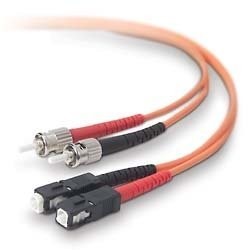Tag: Next generation
5 things we greedily still want Spotify to add
Spotify rolled out a pretty extensive update to it's streaming service this morning. Adding robust social networking features, Spotify now links in with your Facebook account for lightning fast music sharing between your friends, as well as syncing up your…
Top ten changes I'd like to see made in the next Nintendo DS
According to virtually every tech or gaming-orientated blog on the internet superhighway, come July the rumour is that Nintendo will be announcing the next-gen DS console at the E3 expo.
As someone who’s rushed out and bought both previous incarnations of the portable gaming console, I can appreciate the huge lead made between the two, and as much as I adore the Lite, I can think of a couple improvements I’d like to see in the next version, which is rumoured to be called the ‘Liter’ or ‘Extreme’.
The rumour mill has already started grinding, with fingers being pointed at ‘larger screens’, with both possibly being touch-screen, and the hardware being ‘lighter and thinner’. So far, the DS fans aren’t really thinking outside the box, so if you read below, you’ll see my hopes for the next version…
1.) Flash memory – I know that game saves etc are saved onto the game cartridges, but if the DS took a few pointers from their rival the PSP (read on below), then they’d be needing a good 4GB of storage capacity at least.
2.) MP3-playback facility – sure, you can get external add-ons that will enable you to play media on your DS, but wouldn’t it be better if it was integrated?
3.) HSDPA chip – it’s not ever going to happen, but goodness, can you imagine? It already has Wi-Fi, so you can use the Opera browser when in hotspots, or play against your friends, but inbuilt HSDPA would allow you speedy web browsing without the need to be lurking outside Coffee Republic. A collaboration between Ninty and a mobile network would prove lucrative, allowing for a cheap monthly subscription to the web ‘n walk style internet service.
UK Government to investigate path to next generation broadband
 Think your pitifully slow “
Think your pitifully slow “nowhere near up to eight meg” broadband is a joke? You may be vaguely encouraged that the Government is starting to look at how we move Britain into truly fast, “next generation” broadband.
The Business and Competitiveness Minister, Shriti Vadera, launched the independent review on Friday. It will look at the importance of 100Mbps+ broadband to British businesses, and what the potential barriers are to achieving those kind of speeds.
“The way we will do business, access many government services, as well as information and entertainment, will change beyond recognition over our lifetime. New technologies will push the boundaries of today’s communications infrastructure,” she said. “We need to prepare the way for the UK to adopt groundbreaking new technologies to ensure that we do not get left behind – competitively or technologically.”
Get Jean-Luc Picard's Star Trek uniform on eBay
Trekkers, get ready to raid your secret savings account. Patrick Stewart's uniform from Star Trek: The Next Generation is up for grabs on eBay. It's maroon and black, with a proper Captain's insignia on the collar, and a label reading…













